
Is It Erectile Dysfunction Or Low Libido?
A man's inability to achieve an erection may be caused in either of two organs, the penis or the brain. Many men find that ED suddenly disappears when relationship issues are resolved, or when psychological pressures, which may or may not have anything to do with sex, are removed. One of the few herbal remedies that actually treats ED, yohimbe, also helps with issues of low libido (little interest in sex); similar results are reported from the use of the Ayurvedic herb ashwagandha. Anxiety about failure to perform, however, tends to lead to further failure to perform, even when the nerves and blood vessels supplying te penis are in good condition.

Recognizing The Symptoms Of ED
Erectile dysfunction is not an all-or-nothng proposition. Men can have "just a little ED," causing disappointing erections, or full-fledged ED, resulting in a complete inability to have any kind of erection at all. the basic rule is, if the man isn't satisfied, there's nothing wrong with asking the doctor to treat the problem. While a physician typically makes the diagnosis of ED on the basis of the patient's answers to question about sex life, there are specific ways doctors can confirm the problem. One method of diagnosis is check testosterone levels. Men who experience depression (and not just the expected emotional reactions to the inability to have sex), whose body hair starts falling out, or who start growing breast tissue typically get hormone level checks. The doctor will make sure the problem isn't one of the drugs that can cause ED, including high blood pressure pills and many psychoactive medications. A urologist might order nocturnal penile tumescence testing, in which a pressure measuring device is attached to the penis overnight. Or the doctor might inject a chemical prostaglandin E2 directly into the penis, to see if it causes erection.

Which Men Get ED?
In one study of American men, 66% of men over the age of 40 reported some degree of erectile dysfunction. While only 15% of men over 40 reported a complete inability to have any erections at all, 17% reported "mild" ED, the occasional inability to have erections as strong as desired, and 34% reported moderate ED, sometimes being able to have an erection and sometimes not. Another study of American men found that 10% of men as young as 18 have occasional problems with ED. No single factor is more often associated with ED than uncontrolled diabetes. Impotence is also a common complication of uncontrolled high blood pressure or a side effect of some of the drugs (particularly beta-blockers, nitrates, and diuretics) used to treat high blood pressure, coronary artery disease, and cancer treatment.

What Causes ED?
The most common analogy used to explain ED is a tire going flat. Just as air leaking out of a tire, or failure to put air into a tire, can make the tire go flat, blood leaking out of the corpora cavernosa (the network of vessels that fill with blood to make the penis erect) or a failure of blood to flow into the corpora cavernosa can cause ED. "Hardening of the arteries" and even elevated LDL cholesterol levels can interfere with the flow of blood into the penis. Injuries to the penis, whether gradual, as is the case of too much pressure from riding a bicycle seat, or traumatic, as in "breaking" the penis when it is an erect state, can interfere with its ability to hold blood and maintain an erection. Diabetic nerve damage can keep the blood vessels the deliver the penis from responding to signals from the brain, and low testosterone levels (and more rarely, low thyroid hormone levels), can lead to failure to respond to sexual stimulation.
- Important notification about information and brand names used in this slideshow!
- Photo courtesy of Stephanie by Wikimedia Commons : en.wikipedia.org/wiki/File:Male_anatomy.png

Does Lifestyle Cause ED?
Many men with highly charged sex drives experience ED. Sometimes it is a matter of "the little man knows better," almost as if the penis fails to function when sexual intercourse could lead to serious personal problems. And sometimes men "get the message" from ED that lifestyle changes are necessary. Men who smoke cigarettes are more likely to have problems with ED, as are men who eat lots of foods high in saturated fat. (Saturated fat literally clogs the arteries for a few hours after a meal is digested, although the effect wears off in about 8 hours.) Smoking marijuana may help men overcome sexual inhibitions and in some cases feel more intense orgasms, but the estrogenic effects of long-term marijuana use can cause ED, as can long-term use of cocaine.
- Important notification about information and brand names used in this slideshow!
- Photo courtesy of philippelorenzo by Flickr : www.flickr.com/photos/83813725@N08/7667445030/

Psychological Consequence of ED
It goes without saying that most men who have ED find their condition depressing, but this is particularly true of young men who have the disease. Unfortunately, the drugs most commonly prescribed to treat medication, the selective serotonin reuptake inhibitors (SSRIs) such as Prozac, Luvox, Lexapro, Paxil, and Zoloft, and the selective norepinephrine reuptake inhibitors, such as Cymbalta, Pristiq, and Effexor, have the common side effect of causing even more ED. Some generally safe and standardized herbal remedies some as ginkgo extract help some men overcome the effects of these medications, as does the Andean herb maca, but it is important not to mix any of these medications with St. John's wort.

Medications That Can Cause ED
Erectile dysfunction is a common side effect of a number of drugs used to treat high blood pressure, and also a common side effect of some antidepressants (including all of the selective serotonin reuptake inhibitors, or SSRIs) and drugs used to treat schizophrenia. ED isn't really caused by statin drugs used to treat high cholesterol, but if you are a man who has high cholesterol, you are more likely to have ED, and if you are taking statin drugs because you have had a heart attack, you are likewise likely also to have ED. Almost any kind of drug that modifies urination, or treats prostate enlargement, can also cause problems achieving and maintaining erections.
- Important notification about information and brand names used in this slideshow!
- Photo courtesy of Marko Javorac by Flickr : www.flickr.com/photos/thejavorac/6556949031/

Common And Not-So-Common Treatments For ED
When men go to their doctors for ED treatment, they are usually given a pill. The most common choices are Cialis, which allows for erections on demand, and Viagra, which has to be taken an hour or so before sexual intercourse, or its effects wear off. But the little blue pill and its variations are not the only treatments for ED. Some men respond well to testosterone injections or the testosterone patch. These are used when ED is accompanied by fatigue, loss of muscle mass, and literal shrinking of the penis. Other men respond to constriction devices, a penile tourniquet placed at the base of the penis to keep blood from flowing out. Removing the penile constriction device in a timely manner, of course, is essential. And still other men respond to injectible blood vessel dilators such as alpostradil, papaverine, and phentolamine (Regitine). These medications have to be injected into the penis just prior to intercourse--but they often produce erections when no other treatment can.

When Is ED A Symptom Of Heart Disease?
Men of any age, but especially men over 40, need to know that ED can be a symptom of cardiovascular disease. Typically, doctors don't diagnose cardiovascular disease until a man comes in with an actual heart attack in progress, or when he presents himself with the "5 P's," pain, pallor, paralysis, paresthesia (loss of sensation), and pulselessness. ED isn't usually painful, although sometimes the penis loses its normal color. The penis isn't exactly paralyzed, but there frequently is loss of sensation and the pulse that isn't felt in the penis is, of course, erection. It's a lot better for your doctor to start looking for signs of cardiovascular disease when your primary symptom is ED than when your primary symptom is a heart attack. This is one more reason for seeing your doctor when your erections aren't as strong as you would like them to be, or you can't have erections at all.
- Important notification about information and brand names used in this slideshow!
- Photo courtesy of Universitetssykehuset Nord-Norg by Flickr : www.flickr.com/photos/unnfoto/6068321821/

The Penile Pump For ED
Men who want to take the guesswork out of treating erectile dysfunction sometimes opt for an implantable penile pump. In its simplest form, the penile "pump" is basically just an implanted rod that causes a man to have an erection at all times. The size of the penis is limited so that the penis is not visible through clothing. There are also "push button" inflatable pumps that can be activated when desired--but they only work about 70 to 80% of the time, and when they fail, it is not possible to use other methods to achieve an erection. These devices offer either-or erections, either they work completely or they don't work at all. There are also implantable pumps that can give a man control over his erection so that he chooses how erect he wishes to be, but they are prone to mechanical failures and they permanetly injure the natural erectile tissue of the penis.





_f_280x120.jpg)


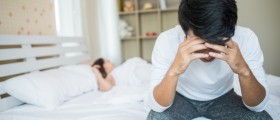
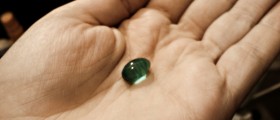

_f_280x120.jpg)

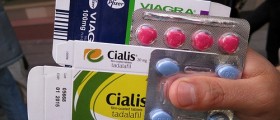
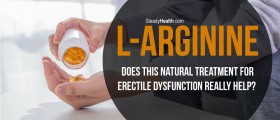








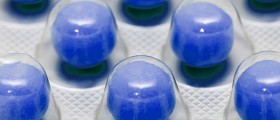
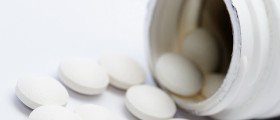
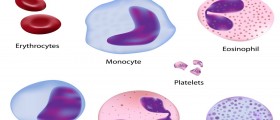
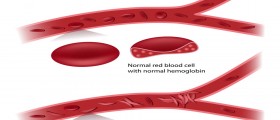
Your thoughts on this
Loading...